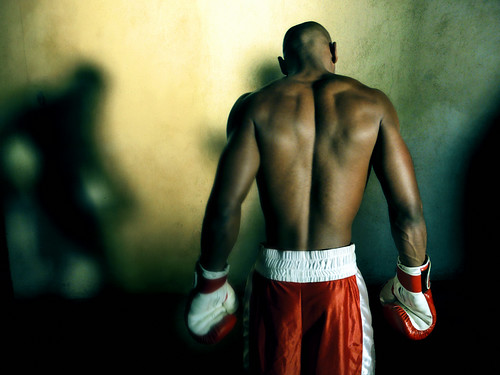Helping Catholic Parish Ministers unlock their ministry and defeat burnout forever. ❤️🔥
A Guide to Catholic Voting
 A teen in my youth group posted this excellent question in our Facebook group for our Parish's youth ministry, asking about voting as Catholics:
A teen in my youth group posted this excellent question in our Facebook group for our Parish's youth ministry, asking about voting as Catholics:
Now I know this is a religious group, but according to Faithful Citizenship, we have a duty to support and (once we become of age) to vote for who we believe best represents Christ. Now I want to ask this very important question: Why do we as Catholics always focus on one issue? You never hear of a Christian rally to end poverty or homelessness, yet you always hear of Christians campaigning against Abortion. While I do understand that abortion is wrong, I just don't get how we cant constantly only vote Republican when Republicans time and time again neglect and hurt our impoverished citizens. The main question here is, do we support Romney who may be pro-life, but at the cost of destroying all social programs, destroying Medicare and Medicaid, Student Aid for college, and a lot of aid to families and individuals in need, or do we support Obama, who may be criticized for the abortion and contraceptive issues, but does support social programs and helps to keep unemployment and poverty down. It will come down to this: Which is the evil that you feel completely comfortable supporting?
This teen is expressing the feelings of probably most of the people in the United States who might not fully understand what the Church is getting at by resisting abortion and the health care mandate so strongly, when there are so many other battles to be fought and issues to deal with. The mainstream media plays this angle all the time: "Look at the Catholic Church, so uptight about such a trivial thing like condoms/abortion/same-sex marriage/religious liberty when people are dying in the streets and going without health care and contracting HIV and AIDS. Why don't they stop thinking about themselves and think about all the millions of Americans we could be helping?" The following is a great Q&A article done by Fr. Stephen F. Torraco, PhD over at EWTN's web resources called A Guide to Catholic Teaching and Voting. ***Nota Bene: It is not the Church's place to tell you who to vote for. But it IS the Church's place to teach us how to vote morally and in good conscience by providing moral guidelines and foundations to use as we decide who to vote for.
####UPDATE: A reader suggested "The Voters Guide for Serious Catholics" produced by Catholic Answers, and it is an excellent summary of how a Catholic should go about voting, including the 5 nonnegotiables and your role as a Catholic voter. I highly recommend reading it as well. Buy a copy or check out the text online here.
A Brief Catechism for Catholic Voters
Fr. Stephen F. Torraco, PhD
1. Isn’t conscience the same as my own opinions and feelings? And doesn’t everyone have the right to his or her own conscience? Conscience is NOT the same as your opinions or feelings. Conscience cannot be identical with your feelings because conscience is the activity of your intellect in judging the rightness or wrongness of your actions or omissions, past, present, or future, while your feelings come from another part of your soul and should be governed by your intellect and will. Conscience is not identical with your opinions because your intellect bases its judgment upon the natural moral law, which is inherent in your human nature and is identical with the Ten Commandments. Unlike the civil laws made by legislators, or the opinions that you hold, the natural moral law is not anything that you invent, but rather discover within yourself and is the governing norm of your conscience. In short, Conscience is the voice of truth within you, and your opinions need to be in harmony with that truth. As a Catholic, you have the benefit of the Church’s teaching authority or Magisterium endowed upon her by Christ. The Magisterium assists you and all people of good will in understanding the natural moral law as it relates to specific issues. As a Catholic, you have the obligation to be correctly informed and normed by the teaching of the Church’s Magisterium. As for your feelings, they need to be educated by virtue so as to be in harmony with conscience’s voice of truth. In this way, you will have a sound conscience, according to which we you will feel guilty when you are guilty, and feel morally upright when you are morally upright. We should strive to avoid the two opposite extremes of a lax conscience and a scrupulous conscience. Meeting the obligation of continually attending to this formation of conscience will increase the likelihood that, in the actual operation or activity of conscience, you will act with a certain conscience, which clearly perceives that a given concrete action is a good action that was rightly done or should be done. Being correctly informed and certain in the actual operation of conscience is the goal of the continuing formation of conscience. Otherwise put, you should strive to avoid being incorrectly informed and doubtful in the actual judgment of conscience about a particular action or omission. You should never act on a doubtful conscience.
2. Is it morally permissible to vote for all candidates of a single party? This would depend on the positions held by the candidates of a single party. If any one or more of them held positions that were opposed to the natural moral law, then it would not be morally permissible to vote for all candidates of this one party. Your correctly informed conscience transcends the bounds of any one political party.
3. If I think that a pro-abortion candidate will, on balance, do much more for the culture of life than a pro-life candidate, why may I not vote for the pro-abortion candidate? If a political candidate supported abortion, or any other moral evil, such as assisted suicide and euthanasia, for that matter, it would not be morally permissible for you to vote for that person. This is because, in voting for such a person, you would become an accomplice in the moral evil at issue. For this reason, moral evils such as abortion, euthanasia and assisted suicide are examples of a “disqualifying issue.” A disqualifying issue is one which is of such gravity and importance that it allows for no political maneuvering. It is an issue that strikes at the heart of the human person and is non-negotiable. A disqualifying issue is one of such enormity that by itself renders a candidate for office unacceptable regardless of his position on other matters. You must sacrifice your feelings on other issues because you know that you cannot participate in any way in an approval of a violent and evil violation of basic human rights. A candidate for office who supports abortion rights or any other moral evil has disqualified himself as a person that you can vote for. You do not have to vote for a person because he is pro-life. But you may not vote for any candidate who supports abortion rights. Key to understanding the point above about “disqualifying issues” is the distinction between policy and moral principle. On the one hand, there can be a legitimate variety of approaches to accomplishing a morally acceptable goal. For example, in a society’s effort to distribute the goods of health care to its citizens, there can be legitimate disagreement among citizens and political candidates alike as to whether this or that health care plan would most effectively accomplish society’s goal. In the pursuit of the best possible policy or strategy, technical as distinct (although not separate) from moral reason is operative. Technical reason is the kind of reasoning involved in arriving at the most efficient or effective result. On the other hand, no policy or strategy that is opposed to the moral principles of the natural law is morally acceptable. Thus, technical reason should always be subordinate to and normed by moral reason, the kind of reasoning that is the activity of conscience and that is based on the natural moral law.
4. If I have strong feelings or opinions in favor of a particular candidate, even if he is pro-abortion, why may I not vote for him? As explained in question 1 above, neither your feelings nor your opinions are identical with your conscience. Neither your feelings nor your opinions can take the place of your conscience. Your feelings and opinions should be governed by your conscience. If the candidate about whom you have strong feelings or opinions is pro-abortion, then your feelings and opinions need to be corrected by your correctly informed conscience, which would tell you that it is wrong for you to allow your feelings and opinions to give lesser weight to the fact that the candidate supports a moral evil.
5. If I may not vote for a pro-abortion candidate, then should it not also be true that I can’t vote for a pro-capital punishment candidate? It is not correct to think of abortion and capital punishment as the very same kind of moral issue. On the one hand, direct abortion is an intrinsic evil, and cannot be justified for any purpose or in any circumstances. On the other hand, the Church has always taught that it is the right and responsibility of the legitimate temporal authority to defend and preserve the common good, and more specifically to defend citizens against the aggressor. This defense against the aggressor may resort to the death penalty if no other means of defense is sufficient. The point here is that the death penalty is understood as an act of self-defense on the part of civil society. In more recent times, in his encyclical Evangelium Vitae, Pope John Paul II has taught that the need for such self-defense to resort to the death penalty is “rare, if not virtually nonexistent.” Thus, while the Pope is saying that the burden of proving the need for the death penalty in specific cases should rest on the shoulders of the legitimate temporal authority, it remains true that the legitimate temporal authority alone has the authority to determine if and when a “rare” case arises that warrants the death penalty. Moreover, if such a rare case does arise and requires resorting to capital punishment, this societal act of self-defense would be a *morally good action* even if it does have the unintended and unavoidable evil effect of the death of the aggressor. Thus, unlike the case of abortion, it would be morally irresponsible to rule out all such “rare” possibilities a priori, just as it would be morally irresponsible to apply the death penalty indiscriminately.
6. If I think that a candidate who is pro-abortion has better ideas to serve the poor, and the pro-life candidate has bad ideas that will hurt the poor, why may I not vote for the candidate that has the better ideas for serving the poor? Serving the poor is not only admirable, but also obligatory for Catholics as an exercise of solidarity. Solidarity has to do with the sharing of both spiritual and material goods, and with what the Church calls the preferential option for the poor. This preference means that we have the duty to give priority to helping those most needful, both materially and spiritually. Beginning in the family, solidarity extends to every human association, even to the international moral order. Based on the response to question 3 above, two important points must be made. First, when it comes to the matter of determining how social and economic policy can best serve the poor, there can be a legitimate variety of approaches proposed, and therefore legitimate disagreement among voters and candidates for office. Secondly, solidarity can never be at the price of embracing a “disqualifying issue.” Besides, when it comes to the unborn, abortion is a most grievous offense against solidarity, for the unborn are surely among society’s most needful. The right to life is a paramount issue because as Pope John Paul II says it is “the first right, on which all the others are based, and which cannot be recuperated once it is lost.” If a candidate for office refuses solidarity with the unborn, he has laid the ground for refusing solidarity with anyone.
7. If a candidate says that he is personally opposed to abortion but feels the need to vote for it under the circumstances, doesn’t this candidate’s personal opposition to abortion make it morally permissible for me to vote for him, especially if I think that his other views are the best for people, especially the poor? A candidate for office who says that he is personally opposed to abortion but actually votes in favor of it is either fooling himself or trying to fool you. Outside of the rare case in which a hostage is forced against his will to perform evil actions with his captors, a person who carries out an evil action ¾ such as voting for abortion ¾ performs an immoral act, and his statement of personal opposition to the moral evil of abortion is either self-delusion or a lie. If you vote for such a candidate, you would be an accomplice in advancing the moral evil of abortion. Therefore, it is not morally permissible to vote for such a candidate for office, even, as explained in questions 3 and 6 above, you think that the candidate’s other views are best for the poor.
8. What if none of the candidates are completely pro-life? As Pope John Paul II explains in his encyclical, Evangelium Vitae (The Gospel of Life), “…when it is not possible to overturn or completely abrogate a pro-abortion law, an elected official, whose absolute personal opposition to procured abortion was well known, could licitly support proposals aimed at limiting the harm done by such a law and at lessening its negative consequences at the level of general opinion and morality. This does not in fact represent an illicit cooperation with an unjust law, but rather a legitimate and proper attempt to limit its evil aspects.” Logically, it follows from these words of the Pope that a voter may likewise vote for that candidate who will most likely limit the evils of abortion or any other moral evil at issue.
9. What if one leading candidate is anti-abortion except in the cases of rape or incest, another leading candidate is completely pro-abortion, and a trailing candidate, not likely to win, is completely anti-abortion. Would I be obliged to vote for the candidate not likely to win? In such a case, the Catholic voter may clearly choose to vote for the candidate not likely to win. In addition, the Catholic voter may assess that voting for that candidate might only benefit the completely pro-abortion candidate, and, precisely for the purpose of curtailing the evil of abortion, decide to vote for the leading candidate that is anti-abortion but not perfectly so. This decision would be in keeping with the words of the Pope quoted in question 8 above.
10. What if all the candidates from whom I have to choose are pro-abortion? Do I have to abstain from voting at all? What do I do? Obviously, one of these candidates is going to win the election. Thus, in this dilemma, you should do your best to judge which candidate would do the least moral harm. However, as explained in question 5 above, you should not place a candidate who is pro-capital punishment (and anti-abortion) in the same moral category as a candidate who is pro-abortion. Faced with such a set of candidates, there would be no moral dilemma, and the clear moral obligation would be to vote for the candidate who is pro-capital punishment, not necessarily because he is pro-capital punishment, but because he is anti-abortion.
11. Is not the Church’s stand that abortion must be illegal a bit of an exception? Does not the Church generally hold that government should restrict its legislation of morality significantly? The Church’s teaching that abortion should be illegal is not an exception. St. Thomas Aquinas put it this way: “Wherefore human laws do not forbid all vices, from which the virtuous abstain, but only the more grievous vices, from which it is possible for the majority to abstain; and chiefly those that are to the hurt of others, without the prohibition of which human society could not be maintained: thus human law prohibits murder, theft and such like.” [ emphasis added]. Abortion qualifies as a grievous vice that hurts others, and the lack of prohibition of this evil by society is something by which human society cannot be maintained. As Pope John Paul II has emphasized, the denial of the right to life, in principle, sets the stage, in principle, for the denial of all other rights.
12. What about elected officials who happen to be of the same party affiliation? Are they committing a sin by being in the same party, even if they don’t advocate pro-choice views? Are they guilty by association? Being of the same political party as those who advocate pro-abortion is indeed a serious evil IF I belong to this political party IN ORDER TO ASSOCIATE MYSELF with that party’s advocacy of pro-abortion policies. However, it can also be true that being of such a political party has as its purpose to change the policies of the party. Of course, if this is the purpose, one would have to consider whether it is reasonable to think the political party’s policies can be changed. Assuming that it is reasonable to think so, then it would be morally justifiable to remain in that political party. Remaining in that political party cannot be instrumental in the advancing of pro-abortion policies (especially if I am busily striving to change the party’s policies) as can my VOTING for candidates or for a political party with a pro-abortion policy.
13. What about voting for a pro-abortion person for something like state treasurer, in which case the candidate would have no say on matters of life in the capacity of her duties, it just happens to be her personal position. This would not be a sin, right? If someone were running for state treasurer and that candidate made it a point to state publicly that he was in favor of exterminating people over the age of 70, would you vote for him? The fact that the candidate has that evil in his mind tells you that there are easily other evils in his mind; and the fact that he would publicly state it is a danger signal. If personal character matters in a political candidate, and personal character involves the kind of thoughts a person harbors, then such a candidate who publicly states that he is in favor of the evil of exterminating people over the age of 70 - or children who are unborn - has also disqualified himself from receiving a Catholic’s vote. I would go further and say that such a candidate, in principle - in the light of the natural law - disqualifies himself from public office.
14. Is it a mortal sin to vote for a pro-abortion candidate? Except in the case in which a voter is faced with all pro-abortion candidates (in which case, as explained in question 8 above, he or she strives to determine which of them would cause the let damage in this regard), a candidate that is pro-abortion disqualifies himself from receiving a Catholic’s vote. This is because being pro-abortion cannot simply be placed alongside the candidate's other positions on Medicare and unemployment, for example; and this is because abortion is intrinsically evil and cannot be morally justified for any reason or set of circumstances. To vote for such a candidate even with the knowledge that the candidate is pro-abortion is to become an accomplice in the moral evil of abortion. If the voter also knows this, then the voter sins mortally.
COPYRIGHT © 2002 Stephen F. Torraco
Mother Teresa and God's Thirst
 15 years ago today Blessed Mother Teresa died, but the impact of her life still echoes throughout the darkness of our world. In honor of this saint's relentless mission to embody the love of Christ to the poor and needy, I wanted to share her guided meditation on God's intense love for us that might only be described as a thirst. In every chapel of the order she founded, the Missionaries of Charity, the words “I thirst” can be found next to the crucifix. Take some time in front of a crucifix to pray through this letter from God's heart and realize God's infinite thirst - for you.
15 years ago today Blessed Mother Teresa died, but the impact of her life still echoes throughout the darkness of our world. In honor of this saint's relentless mission to embody the love of Christ to the poor and needy, I wanted to share her guided meditation on God's intense love for us that might only be described as a thirst. In every chapel of the order she founded, the Missionaries of Charity, the words “I thirst” can be found next to the crucifix. Take some time in front of a crucifix to pray through this letter from God's heart and realize God's infinite thirst - for you.

I Thirst for You
"Behold, I stand at the door and knock… (Rev. 3, 20)
It is true. I stand at the door of your heart, day and night. Even when you are not listening, even when you doubt it could be Me, I am there. I await even the smallest sign of your response, even the least whispered invitation that will allow Me to enter.
And I want you to know that whenever you invite Me, I do come – always, without fail. Silent and unseen I come, but with infinite power and love, and bringing the many gifts of My Spirit. I come with My mercy, with My desire to forgive and heal you, and with a love for you beyond your comprehension – a love every bit as great as the love I have received from the Father ("As much as the Father has loved me, I have loved you…" (Jn. 15:10) I come - longing to console you and give you strength, to lift you up and bind all your wounds. I bring you My light, to dispel your darkness and all your doubts. I come with My power, that I might carry you and all your burdens; with My grace, to touch your heart and transform your life; and My peace I give to still your soul.
I know you through and through. I know everything about you. The very hairs of your head I have numbered. Nothing in your life is unimportant to Me. I have followed you through the years, and I have always loved you – even in your wanderings. I know every one of your problems. I know your needs and your worries. And yes, I know all your sins. But I tell you again that I love you – not for what you have or haven’t done – I love you for you, for the beauty and dignity My Father gave you by creating you in His own image. It is a dignity you have often forgotten, a beauty you have tarnished by sin. But I love you as you are, and I have shed My Blood to win you back. If you only ask Me with faith, My grace will touch all that needs changing in your life, and I will give you the strength to free yourself from sin and all its destructive power.
I know what is in your heart – I know your loneliness and all your hurts – the rejections, the judgments, the humiliations, I carried it all before you. And I carried it all for you, so you might share My strength and victory. I know especially your need for love – how you are thirsting to be loved and cherished. But how often have you thirsted in vain, by seeking that love selfishly, striving to fill the emptiness inside you with passing pleasures – with the even greater emptiness of sin. Do you thirst for love? "Come to Me all you who thirst…" (Jn. 7: 37). I will satisfy you and fill you. Do you thirst to be cherished? I cherish you more than you can imagine – to the point of dying on a cross for you.
I Thirst for You. Yes, that is the only way to even begin to describe My love for you. I THIRST FOR YOU. I thirst to love you and to be loved by you – that is how precious you are to Me. I THIRST FOR YOU. Come to Me, and I will fill your heart and heal your wounds. I will make you a new creation, and give you peace, even in all your trials I THIRST FOR YOU. You must never doubt My mercy, My acceptance of you, My desire to forgive, My longing to bless you and live My life in you. I THIRST FOR YOU. If you feel unimportant in the eyes of the world, that matters not at all. For Me, there is no one any more important in the entire world than you. I THIRST FOR YOU. Open to Me, come to Me, thirst for Me, give me your life – and I will prove to you how important you are to My Heart.
Don’t you realize that My Father already has a perfect plan to transform your life, beginning from this moment? Trust in Me. Ask Me every day to enter and take charge of your life. – and I will. I promise you before My Father in heaven that I will work miracles in your life. Why would I do this? Because I THIRST FOR YOU. All I ask of you is that you entrust yourself to Me completely. I will do all the rest.
Even now I behold the place My Father has prepared for you in My Kingdom. Remember that you are a pilgrim in this life, on a journey home. Sin can never satisfy you, or bring the peace you seek. All that you have sought outside of Me has only left you more empty, so do not cling to the things of this life. Above all, do not run from Me when you fall. Come to Me without delay. When you give Me your sins, you gave Me the joy of being your Savior. There is nothing I cannot forgive and heal; so come now, and unburden your soul.
No matter how far you may wander, no matter how often you forget Me, no matter how many crosses you may bear in this life; there is one thing I want you to always remember, one thing that will never change. I THIRST FOR YOU – just as you are. You don’t need to change to believe in My love, for it will be your belief in My love that will change you. You forget Me, and yet I am seeking you every moment of the day – standing at the door of your heart and knocking. Do you find this hard to believe? Then look at the cross, look at My Heart that was pierced for you. Have you not understood My cross? Then listen again to the words I spoke there – for they tell you clearly why I endured all this for you: "I THIRST…"(Jn 19: 28). Yes, I thirst for you – as the rest of the psalm – verse I was praying says of Me: "I looked for love, and I found none…" (Ps. 69: 20). All your life I have been looking for your love – I have never stopped seeking to love you and be loved by you. You have tried many other things in your search for happiness; why not try opening your heart to Me, right now, more than you ever have before.
Whenever you do open the door of your heart, whenever you come close enough, you will hear Me say to you again and again, not in mere human words but in spirit. "No matter what you have done, I love you for your own sake Come to Me with your misery and your sins, with your troubles and needs, and with all your longing to be loved. I stand at the door of your heart and knock. Open to Me, for I THIRST FOR YOU…"
"Jesus is God, therefore His love, His Thirst, is infinite. He the creator of the universe, asked for the love of His creatures. He thirsts for our love… These words: ‘I Thirst’ – Do they echo in our souls?”
Mother Teresa
Imprimatur Mons. G. Sergio De la Cerda Z. Vicar General Tijuana, B. C. México.
How to Use a Catechism
 Every Catholic needs a copy of the Catechism of the Catholic Church. And every good Catholic should be very familiar with their catechism. Be a real Catholic, refute heretics, know what the Church truly teaches, prove you speak orthodoxy, learn about your faith, defend your faith, hold religious educators accountable, be a Catholic in the fullest sense. But once you have a Catechism, how do you use it?
Every Catholic needs a copy of the Catechism of the Catholic Church. And every good Catholic should be very familiar with their catechism. Be a real Catholic, refute heretics, know what the Church truly teaches, prove you speak orthodoxy, learn about your faith, defend your faith, hold religious educators accountable, be a Catholic in the fullest sense. But once you have a Catechism, how do you use it?
What is the Catechism?
When I was in college and would tell people I was majoring in catechetics, most people reacted by saying "So you're going to be a Priest?" With that in mind, before we talk about the Catechism of the Catholic Church and how to use it, I think it's a good idea to start with the big word right there in the title that might trip us up.
Some definitions...
The word catechesis comes from the Greek word κατηχισμός from kata meaning "down" and echein meaning "to sound" or "to echo" - literally meaning "to sound/echo down".
Blessed Pope John Paul II wrote a Church document on catechesis titled "On Catechesis in Our Time". In it he defines catechesis as:
"...the whole of the efforts within the Church to make disciples, to help people to believe that Jesus is the Son of God, so that believing they might have life in His name, and to educate and instruct them in this life and thus build up the Body of Christ.
(On Catechesis in Our Time, Paragraph 1)
So catechesis is the "echoing down" of the Deposit of Faith done by the Church to every generation throughout history. It is the Church's way of handing on to God's people the Deposit of Faith given to Her by Jesus Christ Himself. A catechism is a systematic summary of fundamental contents of the faith, written with the purpose of echoing down this faith to the faithful.
Cat- words... Catechesis: education in the faith of children, young people, and adults, especially the teaching of Christian doctrine with the goal of initiating the hearers into the fullness of Christian life (cf. CCC 5) Catechism: a systematic and organic presentation of the fundamental contents of Catholic doctrine, as regards both faith and morals, in the light of the Second Vatican Council and the whole of the Church's Tradition (cf. CCC 11) Catechist: a person who does catechesis Catechetics: the study of catechesis Catapocalypse: the feline destruction of life as we know it; spay and neuter your cats
This doesn't mean catechesis is only for kids. In the encyclical "On Catechesis in Our Time", Blessed John Paul II goes on to say:
"...the definitive aim of catechesis is to put people not only in touch but in communion, in intimacy, with Jesus Christ: only He can lead us to the love of the Father in the Spirit and make us share in the life of the Holy Trinity." Paragraph #5
So if you are listening, reading, or seeing something or someone that brings you to a deeper understanding of the Catholic faith and therefore a greater intimacy with Jesus Christ, then you are being catechized. You don't "grow out of" catechesis just like you don't "grow out of" falling deeper in love with your wife.
What is the Catechism of the Catholic Church?
The Catechism of the Catholic Church, the first edition promulgated in 1992, is the first systematic presentation of the whole Catholic faith since the Council of Trent in 1566. Some readers will be familiar with past catechisms such as the Roman Catechism from Trent or the Baltimore Catechism. Catechisms have been produced by the Church both universally and locally by Bishops throughout history.
What makes this catechism so important is that it is the first catechism in over 570 years to be written and guided by promptings of the Pope with the purpose of being used universally throughout the world by the Church.
There is no longer a question about whether or not the Church has "changed its beliefs" since the Council of Trent in order to make the faith more modern, as some heretics within the church have been known to say to support teachings contrary to the Catholic faith.
Thanks to Blessed Pope John Paul II, we can now definitively point to the Catechism as a sure rule and guide in our time of everything the Catholic Church teaches and believes.
Blessed Pope John Paul II first asked in 1985 for a Catechism or compendium of all Catholic doctrine regarding faith and morals to be written by the Church. The first edition was published in French and then translated into other languages such as English. After the Latin official text was finished, the translations were revised by the Latin standard, and so we have the second edition, translated into most languages.
How to Use the Catechism
Contents - The Four Pillars The Catechism is an "organic presentation of the Catholic faith in its entirety". This means that all of the faith relates back to Christ and is interconnected as a unified whole. We can see this in thoughtful structure of the catechism based around four traditional "pillars":
Profession of Faith (Creed or Profession of Faith ) Par. #'s 26-1065 The Celebration of the Christian Mystery (Sacraments or Celebration of Faith) Par. #'s 1066-1690 Life in Christ (Morality or Life of Faith) Par. #'s 1691-2557 Christian Prayer (Prayer of the Believer) Par. #'s 2558-2865
All four sections are centered and unified in Jesus Christ and our faith in Him. This is called "christocentricity". Throughout Church history the Creed, Sacraments, Ten Commandments, and Our Father have been taught as the four pillars of the faith. Likewise the catechism uses these pillars for its structure and outline of each section.
They could be summed up as the profession of faith, celebration of faith, life of faith, and prayer of the believer - Creed, Sacraments, Morality, and Prayer. (CCC 13)
Reference (Paragraph) Numbers Best Use: For navigating the Catechism, referencing to other sections of the Catechism, and for recognizing what pillar of the catechism you are in. These are the bold numbers next to the chunks of text. This is the meat of the Catechism. Short hand references to paragraphs in the Catechism of the Catholic Church are often written CCC 5 or CCC #5 (like in this article, for example) meaning Catechism of the Catholic Church, paragraph number 5.
When people reference to the Catechism they don't use page numbers, because different translations or publications could have differing page numbers. Therefore any references to a section of the Catechism is done using the paragraph number. The table of contents, however, lists page numbers, not reference numbers. (Confusing, I know.)
[NOTE: The Catechism is broken down into the four parts, which are divided into sections, which are divided into chapters, which are divided into articles, which are subdivided into roman numerals and/or paragraphs. Don't let that overwhelm you, this is just to be sure that you aren't confused. When people say "Catechism paragraph 25" they generally mean reference (bold) number 25. ]
Cross References Best Use: Finding how a particular topic is discussed in other pillars of the Catechism and following a theme throughout the Catechism. These numbers appear in the margins and tell you what other sections of the Catechism are related to the idea in the sentence or paragraph you are reading, often bringing you to other pillars of the Catechism. For example, when reading paragraphs 1330 on the Eucharist, the cross references will bring you to 1341, 614, and 2643.
In Brief Best Use: To sum up and review a lengthy section you have read. Also good for memorization. At the end of each major article in the Catechism is the "In Brief" section, which summarizes the entire article's topic in a few short paragraphs.
Index Best Use: Finding information on a specific topic or question in mind. This is an alphabetical index of general subjects and where the subjects are referenced throughout the entire catechism. Each subject or term has subheadings to get more specific about what exactly you are trying to find.
For instance, say you want to read what the Church teaches about Jesus' presence in the Eucharist. Turn to the index, find the bold word "Eucharist", and under it you will find "presence of Christ in the Eucharist" and further subheadings of different topics concerning the presence of Christ in the Eucharist with the paragraph numbers following.
Glossary Best Use: Finding a quick definition of a term and the important Catechism passage on that term. Here you will find short definitions of important terms with references to key paragraph numbers. For example, if you wanted to know what adoration is, a good place to start is looking it up here. You will find a short definition in the glossary which summarizes the articles found in the catechism. It will then give the main paragraph numbers for this term in parenthesis.
Index of Citations Best Use: Finding how a particular Bible passage or verse is referenced throughout the Catechism - how the Church interprets the verse. This is an amazing and powerful feature of the Catechism. You can look up Documents of the Church, Liturgical Rites, important authors from the tradition of the Church, and even the Bible to see how these sources are used throughout the Catechism.
One of the coolest ways to use this index is to look up how a certain passage in the Bible is cited in the catechism. For example, today's Gospel Reading was from Matthew 11:25-27. I can turn to the index of citations and find that Matthew 11:25 is referenced in the catechism paragraphs 153, 544, and 2785. If there is an asterisk, this means the passage was paraphrased in the paragraph.
This is a great way to read the Catechism while reading through the Bible to see how the Church applies a particular passage.
Where You Should Start

- Start at the beginning and read to the glorious end (highly recommended)
- Bring it to Adoration and pray with a few sections at a time (highly recommended)
- Look up something you are interested in or know nothing about
- Think of a question someone has asked you that you didn't know the answer to
- Look up the daily readings in the Index of Citations
Other Catechisms to Check Out
The Catechism Online - The USCCB put the entire Catechism online. YouCat - A catechism put out by the Church and written for the youth of the Church Adult Catechism - A catechism put out by the USCCB and written for adults Compendium to the Catechism - The "mini-catechism" of 200 short pages in question-answer format. A good supplement, but don't wimp out and never read the full catechism. You'll miss out.
_________________________________________________________________________
"I charge you in the presence of God and of Christ Jesus, who will judge the living and the dead, and by his appearing and his kingly power: proclaim the word; be persistent whether it is convenient or inconvenient; convince, reprimand, encourage through all patience and teaching. For the time will come when people will not tolerate sound doctrine but, following their own desires and insatiable curiosity, will accumulate teachers and will stop listening to the truth and will be diverted to myths. But you, be self-possessed in all circumstances; put up with hardship; perform the work of an evangelist; fulfill your ministry. 2 Timothy 4:1-5
******* Who to send this article to: Your mom, recently initiated RCIA candidates, recent converts, atheists you gave a Catechism to, your young adult friends or children, high school religion teachers who need to read the catechism, people you love.
Faith and Reason: An Initiative of FUS
 Franciscan University recently launched "Faith and Reason", an online Catholic resource with the mission of engaging the wider culture with the message of Christ. Its name is inspired by Blessed John Paul II's Encyclical Letter Fides et Ratio(Faith and Reason), and Franciscan University hopes the website will help bring people to a deeper relationship with Jesus Christ and equip Catholics with a deeper understanding of how relevant and reasonable the Catholic faith is even in our post-modern culture. From the site:
Franciscan University recently launched "Faith and Reason", an online Catholic resource with the mission of engaging the wider culture with the message of Christ. Its name is inspired by Blessed John Paul II's Encyclical Letter Fides et Ratio(Faith and Reason), and Franciscan University hopes the website will help bring people to a deeper relationship with Jesus Christ and equip Catholics with a deeper understanding of how relevant and reasonable the Catholic faith is even in our post-modern culture. From the site:
"From emerging issues in business and bioethics to questions of politics, art, music, and more, Faith & Reason will deepen your understanding of the world in which you live and give you the tools you need to engage the culture with truth and love."
The Channels section of the site features videos in all sorts of interesting categories: from Christ in the Marketplace, Media and You, Apologetics 101, Witnesses for the New Evangelizationand more. Be sure to check it out and pass it on to your friends. It is important now more than ever for us to be equipped as Catholics with the reasons for our faith, because our Catholic faith is the MOST reasonable of them all and the most fulfilling! (Dare I say fun too?) As Archbishop Fulton Sheen once said:
"There are not more than 100 people in the world who truly hate the Catholic Church, but there are millions who hate what they perceive to be the Catholic Church."
+JMJ
"Always be ready to give an explanation to anyone who asks you for a reason for your hope." 1 Peter 3:15
*****If you want to help spread the New Evangelization and the Catholic Faith, post the link to the Faith and Reason website on your friend, relative, distant relations, and long time nemesis' facebook, twitter, and email.
Then comment below how many people you sent it to!
Here's the Link: http://www.faithandreason.com/ Or to send them to this article which points them to the website: http://catholicyouthminister.wordpress.com/2012/07/17/faith-and-reason-fus/
I challenge you to really branch out to people you might not normally send stuff like this to. Be an Evangelist!
We Need More Death
Mary Magdalene with the Smoking Flame, Georges de La Tour
You will die.
A friend of mine sells life insurance. He told me that every time someone new sits in his office, he asks them: What are your chances of dying? The poor soul will usually guess something like a 2% chance, or maybe even somewhere between 5% and 10% (the realists).
My friend then exclaims "No, it's 100%! It's 100% certain, you WILL die!"
It is a part of the human condition to be very concerned about death. Even those who deny they think about death (willful ignorance) found themselves concerned about death at some point and decided not to think about it ever again.
The meaning of life has been searched for by philosophers and moms, poets and scientists, plumbers and theologians, and every other person who ever lived for as long as people have been thinking.
What We Want and What Really Happens
Why is humanity so curious about the meaning of life? Because we have a deep sense of our finite existence. We sense that all good stories must end, all plays have closing curtains, every day has its night, your dog doesn’t live forever, and neither does your Grandmother. And sensing this, we ask what the meaning of this life might be.
But in the face of the reality of our impending death, we become uneasy. Death is often a taboo topic. Try it - at the next birthday party you attend say things like "All of us are going to die one day.” Maybe I'm wrong, maybe that's a great conversation starter.
Our society is too quick to cover up death and hide it. We put make up on dead people to hide death’s colors. Think about the phrases we use for death: He has passed on. He is no longer with us. He was taken from us.
We are uneasy with death because we naturally desire the opposite of what naturally happens to all of us - we greatly desire to live forever. We inject ourselves with Botox. We get face-lifts, nose-jobs and tummy-tucks. We douse lotions and potions on age spots, wrinkles, and sags. We start an inquisition against grey hairs - the lucky ones recant and are colored, the not so lucky are plucked out.
Why are people so afraid to tell you their age? Why is there an unspoken impoliteness in asking a woman over 25 how old she is? Is being 47 a dirty secret no one should talk about? Or maybe people don’t like being reminded of their time left on earth.
In the face of the great opposition between what naturally happens and what we naturally desire, there are two ways to live life: embracing death or ignoring it. One is hard and one is easy. I’ll let you figure out which way our modern society tends to live.
 NEWS FLASH: You desire to live forever because you WILL live forever. You have a capacity and desire for immortality because your soul, but not your body, is everlasting.
NEWS FLASH: You desire to live forever because you WILL live forever. You have a capacity and desire for immortality because your soul, but not your body, is everlasting.
Stop buying anti-aging, anti-oxidizing, anti-sagging, anti-cellulite dreams and doing yoga. Your soul is an everlasting creation.
If you have any doubts about your everlasting-ness (Nota Bene: there is a difference between eternal and everlasting) then do some good ol' Catholic research for yourself. The arguments for the immortality of the soul are beyond the scope of this article, but they can be found all over the web (start here). Let’s just suffice it to say we are going to live - granted not exactly in the same way -forever. Your soul is an immortal creation.
You Will Die - And Then You Will Live Forever
And you have two options concerning where you will spend the rest of forever – heaven or hell. But my point lies elsewhere. We need more death.
This past week I attended the funeral of a friend from college. I have been to a few funerals before, but this one had a big impact on me. Maybe it was the unexpectedness of his death that was most jarring. He was only in his early twenties.
During the Funeral Mass I couldn't stop thinking about the strangeness of death. As Christians, death is seen as a passage into the everlasting closeness with God who is love. It should be joyfully celebrated.
But death is also such a hard thing to endure, especially for us who are left behind. Even Jesus experienced this sorrow of death. He says during his agony in the garden: “My soul is sorrowful even to death.” (Mark 14:33-34) We can't know for sure what it will be like to die. There is a mystery to the passage of death that frightens us.
[youtube http://www.youtube.com/watch?v=7740lGif65Y&w=640&h=360] (Kenneth Branagh could arguably be one of history's greatest actors. This movie is worth watching once a year, at least.)
It is tormenting as a Christian to be torn between the empty space of our loved ones and their hope of glory. Death is a drama of love and loathing. The drama between life and death is the mystery of existence, and for good reason.
Churches and cemeteries go together because life and death always occur at the same time. A life is born into this world, and dies in Christ in Baptism, entering into God's family. Later a person dies in this world, and is brought to life in the next, entering into God's beautiful closeness. Both always exist at the same time. You can hear it in the Christos anesti, the Byzantine Easter hymn proclaimed at the Easter Vigil:
Christ is risen from the dead, By death He conquered death, And to those in the graves He granted life!
But if we lack recognition of death, we lose our lives - we fall into sins and indulgences of pride. We slowly lose grip of our smallness and start to believe the “now” here on earth is forever. And then we begin trampling on any sense of the eternal consequences of our actions. Jesus said “For whoever wishes to save his life will lose it, but whoever loses his life for my sake, will find it.” (Matt 16:25)
Why we need more death
I don't mean we need more people to experience death. I mean we need a healthier dose of death in our lives. We need a natural dose of death, in the sense that we need enough exposure and consideration of death in order to become who we are naturally created to be. And we are created with a human nature designed not for this world, but for the next - designed to know and to love God forever. Just like a seed needs enough water to become a flower, we need enough consideration of death to become detached from this world and gain the next.
“The soldier is not respected because he is doomed to death, but because he is ready for death; and even ready for defeat.” G. K. Chesterton, The Superstition of Divorce
The Saints had a saying: "Memento Mori!" or "Remember your Death!". We need to remember our death more. We need this macroscopic perspective in our lives. Go to a graveyard for all souls day and pray for the souls of the departed. Or, attend the funeral of a stranger and do a corporal work of mercy - burying the dead. At the end of our grace before eating, my wife and I pray:
"May the souls of the faithfully departed, by the mercy of God, rest in peace. And may His perpetual light shine upon them."
I am not saying that we should glorify death. The appropriate Catholic response to death is sorrow and pain because God does not delight in death. But it is a sorrow and pain we must endure while grasped firmly to the resurrected hands of Christ, with the hope of eternal joy in heaven which is the joy of seeing Jesus Himself.
"God did not make death, and he does not delight in the death of the living... It was through the devil's envy that death entered the world" (Wis 1:13; 2:24). Catechism of the Catholic Church, Par. 413
We need death because we need life. Knowing that I will die, I spend every waking moment with the purpose of this life in mind. There is no time to waste. I can waste no time in sin. I must love others and strive to love God with all of my today, my right now. There is no putting off until tomorrow becoming a saint. I need to be one now.
To live our lives without death is no life at all. It would tempt us to think our actions here on earth have no higher meaning or purpose. We cannot live our lives without death.
Meditation on Death
I was reminded of St. Francis de Sale's meditation on death from his "Introduction to the Devout Life". The Saints always have a very real grasp on the certainty of death and this gives them a perspective of reality that guides all their actions towards Christ and away from worldliness.
This meditation is given by St. Francis de Sales in a section of his book that is intended to detach us from the affections to mortal sin. It is one thing to never commit a mortal sin, it is quite another to not wish you could commit them. And St. Francis de Sales knew that a firm grasp of our mortality helps us detach ourselves not only from committing sin, but also from the temptation to commit sin.
Take a few minutes and pray through this meditation. If we live our lives without a clear grasp of the certainty of that moment when we shall "shuffle off these mortal coils", we can be tempted to become too attached to this world, of which we are merely temporary guests.
Meditation Of Death by St. Francis de Sales From the Introduction to the Devout Life
[My comments are in brackets.]
Preparation 1. Place yourself in the presence of God. 2. Ask him to give you his grace. 3. Imagine yourself to be lying ill upon your bed of death, without any hope of recovery.
Considerations 1. Consider the uncertainty of the day of your death. O my soul, thou must one day quit this body. When will it be? Will it be in the winter or in summer? In a town or in the country? Will it be without any warning, or with warning? Will it be the end result of disease or of some accident? Wilt thou have time to confess or not? Wilt thou be assisted by thy confessor and spiritual Father? Alas! we know nothing at all about any of these things. We only know that we shall die, and always sooner than we expect.
2. Consider that the world will then come to an end, as far as you are concerned, and that there will be no more of it for you; it will turn upside down before your eyes. Yes, for then pleasures, vanities, worldly joys, vain affections will appear as phantoms and shadows. Ah! wretch that I am, for the sake of what trifles and unrealities have I offended my God? You will see that you have forsaken God for the sake of nothing. On the contrary, devotion and good works will seem to you then so desirable and sweet: and why have I not followed this beautiful and pleasant path? then the sins which used to seem very little will appear as big as mountains, and your devotion very small.
3. Consider the long and languishing farewells which your soul will bid to this poor world: she will say farewell to riches, to vanities and vain company, to pleasures, to pastimes, to friends and neighbors, to kindred, to children, to husband, to wife, in brief to every creature; and last of all, to her body, which she will leave pale, emaciated, wasted, hideous and fetid.
4. Consider with what haste your body will be removed and hidden in the earth, and how, when that is done, the world will scarcely give another thought to you, and will not remember you any more than you have remembered others: God rest his soul, they will say, and that is all. O death, how important thou art, how pitiless thou art!
Affections and Resolutions 1. Pray to God and cast yourself into his arms. Alas! Lord, take me under thy protection on that fearful day; let that hour be happy and favourable to me, and rather let all the other hours of my life be sad and sorrowful.
2. Despise the world. Since I know not the hour at which I must quit thee, O world, I will not fix my affections on thee at all. O my dear friends, my dear alliances, let me love you only with a holy friendship, which can last eternally; for why should I united myself to you in such a way that it is necessary to dissolve and break the bond of union?
3. I will prepare myself for that hour, and will take all the care that is necessary to make the passage happily; I will make sure of the state of my conscience to the best of my ability, and will put into order such and such shortcomings.
Conclusions Thank God for these resolutions which he has given you; offer them to his Majesty; implore him again to give you a happy death through the merits of that of his Son. Implore the aid of the Virgin and of the Saints.
Pater, Ave Maria [Our Father, Hail Mary]
Make a nosegay of myrrh. [Odd word, I agree, but this means to take time to cherish the sweetness of the meditation and resolutions God has given us.]
_________________________________________________________________________
"I call heaven and earth today to witness against you, I have set before you life and death, the blessing and the curse. Choose life, then, that you and your descendants may live" Deuteronomy 30:19
Mary, Our Lady of a Happy Death, pray for us.
[youtube=http://www.youtube.com/watch?v=U7DcySekLKY]
***I couldn't not include this as well from The Imitation of Christ: See, then, dearly beloved, the great danger from which you can free yourself and the great fear from which you can be saved, if only you will always be wary and mindful of death. Try to live now in such a manner that at the moment of death you may be glad rather than fearful. Learn to die to the world now, that then you may begin to live with Christ. Learn to spurn all things now, that then you may freely go to Him. Chastise your body in penance now, that then you may have the confidence born of certainty.
Ah, foolish man, why do you plan to live long when you are not sure of living even a day? How many have been deceived and suddenly snatched away! How often have you heard of persons being killed by drownings, by fatal falls from high places, of persons dying at meals, at play, in fires, by the sword, in pestilence, or at the hands of robbers! Death is the end of everyone and the life of man quickly passes away like a shadow.
Who will remember you when you are dead? Who will pray for you? Do now, beloved, what you can, because you do not know when you will die, nor what your fate will be after death. Gather for yourself the riches of immortality while you have time. Think of nothing but your salvation. Care only for the things of God. Make friends for yourself now by honoring the saints of God, by imitating their actions, so that when you depart this life they may receive you into everlasting dwellings.
THE END.
All Hipsters Eventually Become Catholic
 If you've been living in a bomb shelter under your parent's house since 1990 and don't know what a hipster is, then go here and read up to get a rough idea. I think they're Catholics.
If you've been living in a bomb shelter under your parent's house since 1990 and don't know what a hipster is, then go here and read up to get a rough idea. I think they're Catholics.
Hipster refers to a subculture of contemporary young adults. They like independent music and wearing unpopular clothing styles. Hipsters love things that aren't mainstream, and they love irony and paradox. They love having their own art, culture, and hipster jargon. They love reading the books no one recognizes and listening to the music you wouldn't know about.

Lots of people I know have opinions of hipsters. Some flat out hate them. They have been called names like "the embodiement of postmodernism" by critics. Some turn their noses up in contempt, but secretly (or not so secretly) dress like them. In fact, a hipster would turn up his nose if you called him a hipster.
The Word on Fire blog gives some good insight into how to evangelize this subset of our modern culture, but I don't think we have to be too worried:
Hipsters eventually become Catholic.
This is less of a fact and more of a prophecy. But haven't you felt the same way deep down?
Aren't you, as a Catholic, somewhat charmed and intrigued by hipsters?
Next Generation Hipster Manifesto
Isn't it true that living out the Catholic faith in modern society is the ultimate anti-mainstream life of non-conformity and going-against-the-flow? And the Catholic culture we've inherited provides a wealth of uncool topics to chose from.
Eventually all the dingy coffee shops will be places where you can spot a guy wearing skinny jeans, an impractical scarf, and donning a green tattoo of St. Basil on his arm.
The new hispter loves going to daily Mass at his parish, where the pews are filled with no one under the age of 50. He did it before it was cool.
That guy in the corner with the thick rimmed glasses and bowling shoes sipping a chai latte? He's wearing a St. Benedict crucifix while reading a leather bound copy of “Medieval Religion and Other Essays” with yellowed pages. He’s been on a Christopher Dawson kick these past months. (If you don't know about him, you aren't a Catholic hipster and you should really look into him.)
 You can tell the likes of the Next Generation of Hipsters by their out of place lingo. They use words like "interretium" when referring to the internet, are known to dance and shout "Veni, veni, veni Locamowae cum me", and have stickers on their bikes that say "Sona si Latine loqueris".
You can tell the likes of the Next Generation of Hipsters by their out of place lingo. They use words like "interretium" when referring to the internet, are known to dance and shout "Veni, veni, veni Locamowae cum me", and have stickers on their bikes that say "Sona si Latine loqueris".
Latin is a "dead" language you know. How much more not mainistream can you get?
They form book clubs and meet in the back of the local open-mic cafe to chuckle over G.K. Chesterton - you wouldn't understand.
They argue about how Tantum Ergo should be chanted, and have Gregorian Chant for all Seasons as a channel on Pandora.
They believe whole heatedly in subsidiarity, and they pick up their vegetables from a local farm CSA program wearing their paradoxical clothing.
They date seriously and are excited to live a life of chastity and monogamy. Being single and sleeping around is so safe and boring and mainstream anyways. It's a cowardly garden-variety life running from responsibility, never risking rejection or failure, and being too timid to attempt the challenge of choosing the one you will spend the rest of your life loving in total selflessness. And try raising other human persons for 18 years at a time once you are married.
The next generation of hipsters refuse the mediocrity of self-indulgence. The popular existence of floating from one drunken party to another memory-less night, that's easy. It takes no thought or self-reflection or individuality. What a familiar story. Getting consistently high is too simple - what a lame and bland existence.
Try to make a decision that lasts the rest of your life - get married. That's risky. Have a child and try to get him to heaven. What a lofty goal. Live through the ups and downs and feel the pains and joys of REAL life experienced to the full with the wide spectrum of human emotion and experience.
These Catholic Hipsters of the New Generation don't accept the widespread belief that suffering (and therefore life) is pointless. These hipsters have the radical notion that they are in a love affair with a God that is bigger than the universe, knows them better than they know themselves, and longs for them and their perfection like a deer pants for water. Now there is the premise of an outside-the-box life worth living.
Because Jersey Shore and the sex, drugs, and rock and roll of the average has so been done before a GAHJILION times.
_________________________________________________________________________
This is part of a series of posts called the Catholic Hipster Manifesto.
**Comment and add some of the activities and interests of the Ultimate Catholic Hispter. I know you've seen one. Of course you're not one.
####Don’t forget to subscribe so ya don’t ever miss any Catholic goodness from this blog! Do it here!
Counter Punch the Devil in the Face
 (photo ElMarto)
(photo ElMarto)
In boxing you are either throwing a punch or dealing with a punch being thrown at you.
Most people would think winning in boxing means focusing only on throwing good, accurate, and strong punches. But a good defense is pivotal in boxing - and a counter-punch while on the defensive can end a match.
Check out Mike Tyson, who is known for his raw power and also his defense. A lot of his knock-out blows came as a counter to a punch thrown at him. He had amazing defense and was a counter-punch expert.
[youtube=http://www.youtube.com/watch?v=uYZzMPsm6c4&feature=related]
The counter is extremely effective for a few reasons:
1.) In taking a shot at you, your opponent is risking his guard in order to land a blow. When your opponent is throwing a jab with his left hand, his arm and hand are no longer defending his face and body. Countering can be a game changer when a boxer dodges an attack and then capitalizes while his opponent is partially off-guard. He turns a situation where he is on his heels into an advantage.
2.) Your opponent's momentum works to your advantage. When your opponent lunges forward to throw a right cross, you have an opportunity to counter-punch as he lunges forward. If you understand physics, this creates a scientific phenomenon known as "intensified oucheyness". Countering uses a drastic change in momentum to deliver an ouchey.
St. Ignatius of Loyola was a soldier before he had his huge conversion to Christ. He knew battle very well and even suffered a debilitating injury to his leg. In his writings on the spiritual life, he talks about how the soul can only ever be moving in one of two directions: towards God or away from God.
Notice St. Ignatius does not add a third position for the soul: temptation. Temptation is not a neutral situation. Temptation either works to move you closer to God or further from Him.
When the tempter throws an attack your way, you can either sit back and get knocked out or you can counter-punch him in the face. There is no third option.
St. John of the Cross talks about dealing with temptation, and mentions a way to counter the devil by an act of raising our attention and love to God.
From The Spiritual sayings of St. John of the Cross (Peers, vol. III, pp. 289-291)
"When we feel the first movement or attack of any vice, - as soon as we are conscious of it, we should meet it with an act or movement of anagogical love directed against this vice, and should raise our affection to union with God, for by this means the soul absents itself from its surroundings and is present with its God and becomes united with Him, and then the vice or the temptation and the enemy are defrauded of their intent, and have nowhere to strike; for the soul, being where it loves rather than where it lives, has met the temptation with divine aid, and the enemy has found nowhere to strike and nothing whereon to lay hold, for the soul is no longer where the temptation or enemy would have struck and wounded it..."
When you are facing temptation, you could focus on the opposite virtue that would combat the vice. For instance, when tempted to lust you could combat it by meditating on the virtue of charity. In this way we are blocking the attack with the virtue.
But a better way, says St. John of the Cross, is to slip out of the way of the strike all together, raise your attention and love up to the Father, and deliver a counter right to satan's smug chin using the temptation as an opportunity to grow closer to God. Just what the devil doesn't want. He tries to dish it out on you and BAM! you counter by reminding yourself of God's presence and lifting up your gaze and love to the Father.
St. John is saying that by not focusing on the temptation the devil is throwing at you, evading it, and countering by raising ourselves up to God, "the enemy has found nowhere to strike and nothing whereon to lay hold".
1.) In taking a shot at you, your opponent is risking his guard in order to land a blow. When the devil throws temptation your way, he is risking the opportunity for you to become aware of the temptation. When you become aware of temptation, you have the opportunity to react by moving towards God and away from the temptation.
2.) Your opponent's momentum works to your advantage. The stronger the temptation, the stronger the surge of the heart towards God needs to be. In this way, temptation gets thrown back in the face of satan like swinging a golf club at a land mine.
So the next time you experience temptation, don't stand there and take it - go for the knockout.
Profession of Faith & Oath of Fidelity
I, Edmund Mitchell, with firm faith believe and profess everything that is contained in the Symbol of faith: namely:
I believe in one God, the Father, the Almighty, maker of heaven and earth, of all that is seen and unseen. I believe in one Lord, Jesus Christ, the only Son of God, eternally begotten of the Father, God from God, Light from Light, true God from true God, begotten not made, one in Being with the Father. Through him all things were made. For us men and for our salvation, he came down from heaven: by the power of the Holy Spirit he became incarnate of the Virgin Mary, and became man. For our sake he was crucified under Pontius Pilate; he suffered death and was buried. On the third day he rose again in accordance with the Scriptures; he ascended into heaven and is seated at the right hand of the Father. He will come again in glory to judge the living and the dead, and his kingdom will have no end. I believe in the Holy Spirit, the Lord, the giver of life, who proceeds from the Father and the Son. With the Father and the Son he is worshiped and glorified. He has spoken through the Prophets. I believe in one holy catholic and apostolic Church. I acknowledge one baptism for the forgiveness of sins. I look for the resurrection of the dead, and the life of the world to come. Amen.
With firm faith, I also believe everything contained in the Word of God, whether written or handed down in Tradition, which the Church, either by a solemn judgement or by the ordinary and universal Magisterium, sets forth to be believed as divinely revealed.
I also firmly accept and hold each and everything definitively proposed by the Church regarding teaching on faith and morals.
Moreover, I adhere with religious submission of will and intellect to the teachings which either the Roman pontiff or the College of Bishops enunciate when they exercise their authentic Magisterium, even if they do not intend to proclaim these teachings by a definitive act.
II. OATH OF FIDELITY ON ASSUMING AN OFFICE TO BE EXERCISED IN THE NAME OF THE CHURCH
(Formula to be used by the Christian faithful mentioned in Canon 833, nn. 5-8)
I, Edmund Mitchell, in assuming the office of Catholic Blogger, promise that in my words and in my actions I shall always preserve communion with the Catholic Church.
With great care and fidelity I shall carry out the duties incumbent on me toward the Church, both universal and particular, in which, according to the provisions of the law, I have been called to exercise my service.
In fulfilling the charge entrusted to me in the name of the Church, I shall hold fast to the deposit of faith in its entirety; I shall faithfully hand it on and explain it, and I shall avoid any teachings contrary to it.
I shall follow and foster the common discipline of the entire Church and I shall maintain the observance of all ecclesiastical laws, especially those contained in the Code of Canon Law.
With Christian obedience I shall follow what the Bishops, as authentic doctors and teachers of the faith, declare, or what they, as those who govern the Church, establish.
I shall also faithfully assist the diocesan Bishops, so that the apostolic activity, exercised in the name and by mandate of the Church, may be carried out in communion with the Church.
So help me God, and God's Holy Gospels on which I place my hand.
Ad Majorem Dei Gloriam Edmund Mitchell June 03, 2012 The Solemnity of the Most Holy Trinity
Profession and Oath Taken from : Vatican Congregation for the Doctrine of the Faith
NOTE: Canon 833, Nos. 5-8 obliges the following to make the profession of faith: vicars general, episcopal vicars and judicial vicars; "at the beginning of their term of office, pastors, the rector of a seminary and the professors of theology and philosophy in seminaries; those to be promoted to the diaconate"; "the rectors of an ecclesiastical or Catholic university at the beginning of the rector's term of office"; and, "at the beginning of their term of office, teachers in any universities whatsoever who teach disciplines which deal with faith or morals"; and "superiors in clerical religious institutes and societies of apostolic life in accord with the norm of the constitutions."
I am not any of these, however I do deeply love and respect my Church and voluntarily bind myself to this profession and oath.
Christ in a Fool's Clothing, Or a Fool in Christ's Clothing
Sometimes I am nothing but a fool in Christ's clothing. Sometimes I talk the talk and maybe even walk the walk, but I am just a fool, wearing a Christ disguise.
I act like Christ: I go to Mass daily and Confession weekly, I read the Bible and talk about God and Heaven and hell and mercy and grace and the rescue of man from dark places. I smile at the stranger and talk with the loner. I tell all my friends and relatives why they should know God.
Sometimes I talk and talk and walk and walk, but I am just a fool, wearing Christ's clothing.
"If I speak with the tongues of men and of angels, but do not have LOVE, I have become a noisy gong or a clanging cymbal. If I have the gift of prophecy, and know all mysteries and all knowledge; and if I have all faith, so as to remove mountains, but do not have LOVE, I am nothing. And if I give all my possessions to feed the poor, and if I surrender my body to be burned, but do not have LOVE, it profits me nothing." 1 Corinthians 13:1-3
You know, there is having love, and then there is having the One Who is called Love. There is having Valentine's-day-Hollywood-pink love, and then there is having the One Who's name is Love. (1 John 4:8) I think St. Paul means the latter. St. Paul does not mean having a warm do-good feeling for others, he means being so possessed by Love Himself as to love on His behalf. Because St. Paul also wrote: "I live no longer I, but Christ lives in me." (Galatians 2:20)
How can I say this if I am not inebriated by Christ? How can Christ live in me if my mind is not consumed with thoughts of Christ, like a bride separated from her groom? If my soul is not consumed with love of Christ, attention to Christ, intimacy with Christ, conversation with Christ?
Holiness does not consist of acting holy. Becoming "a little Christ" is the goal, not acting like Christ. Becoming a saint is the end, not acting like a saint. No longer I, but Christ who lives in me. And the only way to achieve this is to be so united with Christ that even my actions are not my own.
O Lord, how often have I tried to be a servant without ever speaking to the Master? How often have I tried to carry the message in pride, unfamiliar with the Author?
Christ calls us to communion and transformation. The call is to become Christ disguised behind my imperfections; like a Shakespearean fool, who is no fool at all. Then can we be a fool for Christ (1 Cor 4:10).
Lord Jesus, make me into you - make me a Christ disguised by my imperfections. Help all of me be consumed by one goal: loving you. And when I am a fool trying to pass for you, a fool wearing your clothes, who does not know you, let me fail. Lord Jesus, make me into you - make me a Christ in a fool's clothing. Until you replace my motley rags with the robes of a resurrected body.









